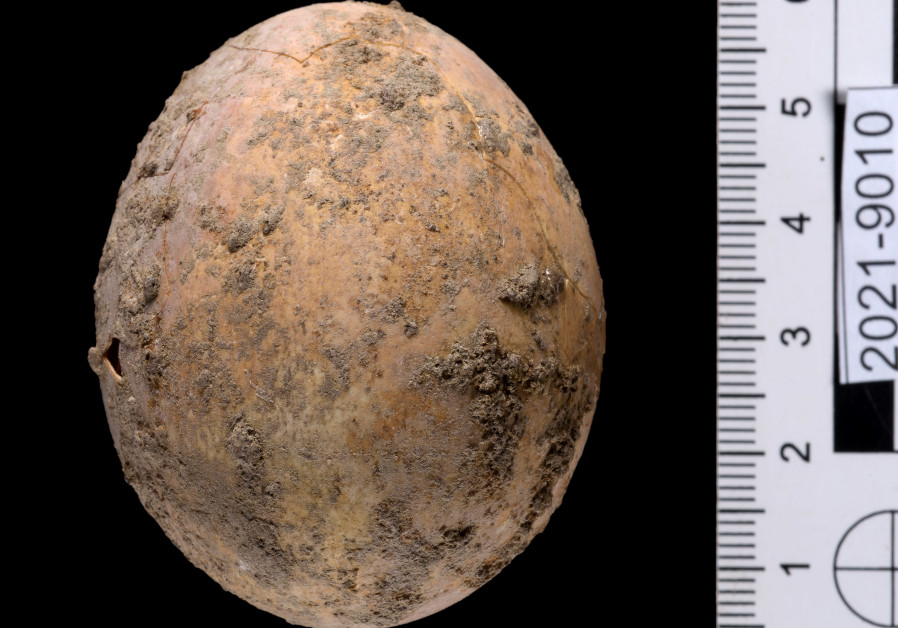
“The egg’s unique preservation is evidently due to the conditions in which it lay for centuries, nestled in a cesspit containing soft human waste that preserved it,” said IAA archaeologist Alla Nagorsky, the site’s excavation director. “Even today, eggs rarely survive for long in supermarket cartons. It’s amazing to think this is a 1,000-year-old find!”
Since the shell was slightly cracked, most of its contents leaked out, but part of the yoke was still inside, which will allow further analysis in the future.
“Chickens were domesticated in southeast Asia relatively recently, around 6,000 years ago, but it took time for them to enter the human diet,” Perry Gal noted. “They were used for other purposes, such as cockfighting, and they were considered beautiful animals, exhibited in ancient zoos and given as presents to kings.
“Actually, one of the earliest sites in the world where we find evidence of chicken farming is Maresha, a Hellenistic site in Israel dating back 2,300 years,” she added.
According to Perry Gal, ancient chickens found in the region, as well as their eggs, were smaller than modern ones.
Chicken came to represent an important part of the diet of ancient Jews and, later on, of ancient Muslims, who could not consume pork.
“Families needed a ready protein substitute that does not require cooling and preservation, and they found it in eggs and chicken meat,” said Perry Gal.
The egg found in Yavne further cracked and broke when it was removed from the site, but was restored to its original state in the IAA organics lab.
The cesspit also contained some other objects, including three bone dolls from the same period.
The excavation has been conducted as part of the project to build a new neighborhood in Yavne.
Israeli law requires that all construction projects are accompanied by a salvage excavation.
